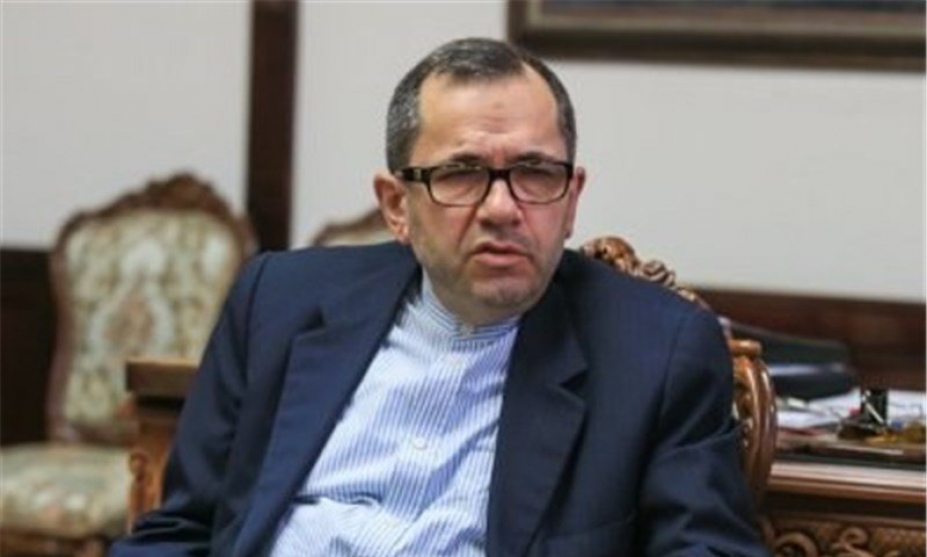 Majid Takht-Ravanchi, the ambassador of Iran for the United Nations (UN). (Image via: Tehran Times)
Majid Takht-Ravanchi, the ambassador of Iran for the United Nations (UN). (Image via: Tehran Times)
Nuclear Deal Is the Key for US-Iran Reconciliation
TEHRAN - It is a public secret that the bilateral relationship between the U.S. and Iran is awful since 1980, after the incident of the 1979 Islamic Revolution in Iran against U.S.-backed monarchy in the country. As matter of fact, there might be no relationship at all, since both countries rely on other countries to represent and to serve as protective power for both countries: Switzerland for the U.S. and Pakistan for Iran.The relation worsened in May 2018 when Trump, as the President of the United States, decided to walk out of The Joint Comprehensive Plan of Action (JCPOA) – generally known as Iran nuclear deal – having referred to it as “ the worst deal ever”, and instead, he imposed economic sanctions on Tehran. JCPOA was signed by 8 countries before the U.S. walked out.
In exchange for the withdrawal, Iran threatened the U.S. that they would close the Strait of Hormuz should the U.S. continue imposing oil sanctions on Iran.
In his initial speech, Trump promised to fix U.S. relations with Iran. Turned out, the relation worsened. Since then, the Supreme Leader of Iran, Ali Khamenei, decided to turn on a cold shoulder to the U.S., not wanting to negotiate any matter with Uncle Sam.
So, does that mean that the 2 countries should be at each other’s throat forever? Certainly not. At least, that is according to Majid Takht-Ravanchi, the ambassador of Iran for the United Nations (UN). Furthermore, he hinted that, in spite of the cold shoulders, Iran is actually tired of all this repercussion and wants to negotiate with the U.S. On one condition, the U.S. should come back to negotiating JCPOA.
“Try to compare our conditions before 2018 and after their withdrawal at the end of 2018. If so, then the root of the problem lies within the withdrawal,” said Ravanchi.
Ravanchi also pointed out that under threats and sanctions imposed by the U.S., it would be really difficult for both countries to reconcile, noting that Iran felt intimidated by these pressures. However, Ravanchi said that Iran would not back off from pressure, as they still could sustain its people amid the hard tension.
For the European Union (EU), Ravanchi suggested that they should rush their commitment under the JCPOA agreement, or Iran would continue their 2nd Phase. On 8 May, Iran stated that if the EU could not make it, then they would continue to produce uranium in an abundant amount.
What commitment to be precise? EU countries, represented by UK, France, and Germany launched the Instrument in Support of Trade Exchanges (INSTEX), an initiative to help Iran counter U.S. economic sanction through non-dollar trade with those countries. However, Iran criticized the initiative as it did not do its trick to minimize the effect of U.S. economic sanctions.
Source: https://ifpnews.com/wired/iran-hints-may-negotiate-with-trump-if-us-returns-to-jcpoa/
 English
English Japan
Japan

provigil and tricare buy provigil without presciption mind lab pro vs modafinil how many people lose weight on modafinil
proair ventolin interchangeable proair albuterol sulfate online albuterol inhaler over the counter how often can you give albuterol nebulizer treatments
furosemide liquid furosemide 40 mg tablet is lasix a water pill to which of the following pharmacologic classes does furosemide belong
prednisone trade name deltasone without script online in mexico prednisone 50 mg side effects how long does it take to get prednisone out of a dog's system
canadian pharmacies without an rx viagra alternatives cialis 20 mg price viagra levitra cialis différences 4 dollar walmart list 2018 average age of viagra users walgreens viagra penile enhancement real photos real viagra without a doctor prescription pfizer patient assistance program application herb viagra flomax ed online doctors that prescribe pain meds list of pfizer products alternatives to viagra real viagra without a doctor prescription poly king gnc male enhancement products cvs viagra generic drug name what does flomax actually do viagra ohne rezept do male enhancers work viagra eye side effects how much is viagra without insurance purchasing cialis in mexico viagra tablets uk best ed supplements for men grapefruit seed extract vs grapefruit oil cost of viagra the red pill
neurontin for withdrawal how much neurontin to get high how to stop gabapentin safely
amoxicillin 825mg is amoxil good for uti por cuantos dias se toma amoxil?
priligy purchase what's similar to priligy why mix sildenafil with dapoxetine
methotrexate plaquenil plaquenil where to buy plaquenil side effects mayo clinic what does alcohol while taking plaquenil do
canadian government approved pharmacies best male supplements for libido viagra no prescription funny viagra label cocaine and viagra interaction cheapest pharmacies to buy prescriptions
neurontin settlement agreement gabapentin uk buy is neurontin 300 mg a narcotic how to increase gabapentin bioavailability
plaquenil for ra plaquenil 200 mg price uk should you take plaquenil with milk what pain meds are safe with plaquenil
ivermectin dose ivermectin cost uk worming goats with ivermectin pour on how to administer ivermectin as a dip
fda approved generic viagra amlodipine and cialis interaction sildenafil viagra can women take mens cialis prescription drugs in mexico available girls pink ladies halloween costume
symptoms of prednisone prednisone online sale how long is prednisone in your system what is the usual dose of prednisone for polymyalgia rheumatica
albuterol 0.083 albuterol for sale how to use albuterol without nebulizer what is ventolin hfa?
lasix classification buy lasix on line water pills lasix weight loss what does lasix do heart failure
all natural viagra red pill blue pill doctor x viagra fill my prescription online viagra alternatives that work